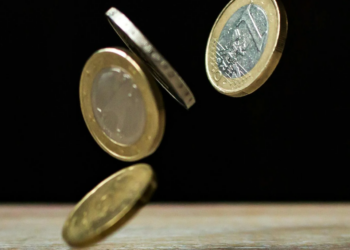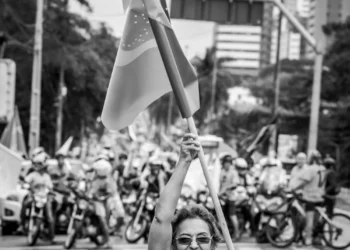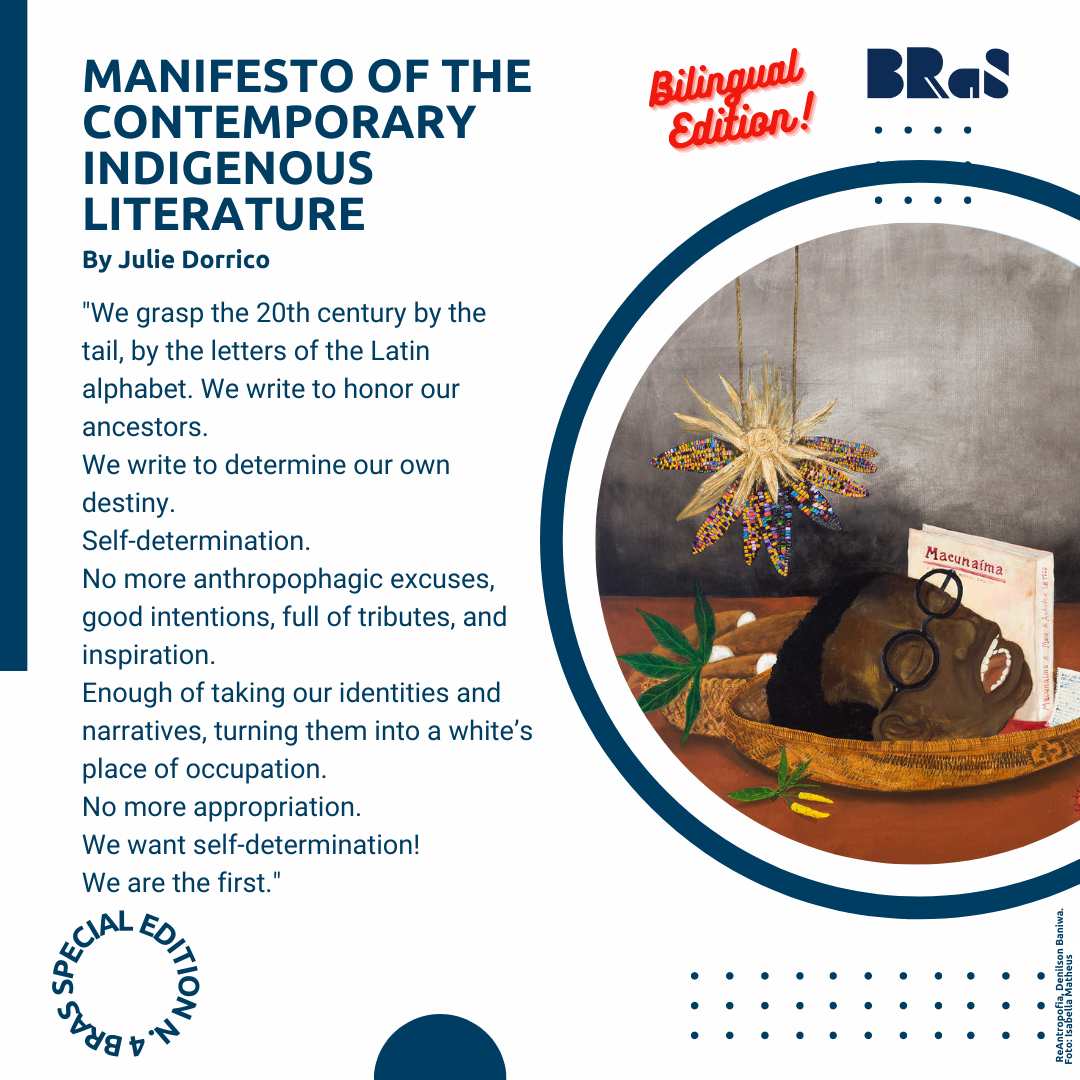by Luíza Cerioli*
Reviewed by Matheus Lucas Hebling
With many still appalled by the violent and uncertain unfoldings of the Russian invasion of Ukraine, several spillover effects amount globally. Thousands of Ukrainian refugees pilling in Polish, Slovakian and Hungarian borders, skyrocketing prices of energy resources, fear of shortages and blackouts in Europe, plummeting of the Russian ruble, and unexpected activism from companies and organizations – such as Visa, Mastercard, Starbucks, FIFA, and Coca-Cola – halting business with Moscow. Putin’s war has many complex motivations, but one thing is for sure: it put Russia back in the center of the world as he always intended.
By doing so, he also brought the issue of extractivism to the core of the International Relations debate. Russia is an extractivist country, relying massively on extracting and exporting raw natural materials. It is the world’s largest exporter of oil and the second-largest crude oil exporter. It is also the world’s largest natural gas exporter and a powerhouse on coal briquettes, raw nickel, iron, and nitrogenous fertilizers. With the prices of oil reaching more than U$ 100 a barrel for the first time since 2014, Europe – and a significant part of the world – brace itself for an energy and food supply crisis.
However, for any crisis, there is always someone taking advantage of emerging opportunities. While for other oil-exporting countries, notably Venezuela and Iran, the global fear of shortage is giving them leverage for negotiating with Western countries that traditionally sanctioned and isolated them, others are capitalizing on the Ukraine-Russian conflict for their domestic interests. That is the case for Brazilian President Jair Bolsonaro (PP), who has attempted to frame the possible shortage crisis as a reason to push for the liberalization of mining in indigenous territory.
The 191-2020 bill
Bolsonaro’s saga against laws for protecting indigenous rights is long-established. He links nationalist rhetoric with an ambition to promote Brazilian economic development by extracting minerals such as niobium, gold, magnesium, and potassium. For him, laws that guarantee to the indigenous people the sole right to explore specific land reserves deprive Brazilians, in their totality, of the earth’s many riches. Moreover, excessive protection put Brazilian sovereignty at risk in his simplistic logic: “if we are not exploring our resources, others will.” During his presidential campaign, Bolsonaro promised that “natives will not receive one more centimeter of land” – and so has been since 2019. That has pleased this electorship, particularly those from the agribusiness and mining sectors, eager to see more indigenous territory open for exploitation.
In this context, on February 6th, 2020, the then justice minister, Sérgio Moro, and the mining and energy minister Bento Albuquerque proposed the law project PL 191-2020, which aims at regulating and legalizing mining concessions in indigenous land.The project also enables garimpo (artisanal mining), the use of water resources to generate energy, and the cultivation of transgenics in indigenous land. The project provoked outrage among indigenous community associations, environmental protection groups, and the many within the opposition, as it showed “total disregard for national and international legislation.” Mining and cattle cause much of the deforestation in Amazon and have immensely traumatized indigenous communities’ lives through violence, threat, destruction of cultural values, and depriving their access to basic livelihood.
If the law project were to be approved, the indigenous communities would have the right to be heard and consulted when it comes to establishing new mining sites or transgenic farming – but they would not have veto power. While the project was a crowd-pleaser for Bolsonaro’s voters, substantial domestic and international pressure forced the then president of the Deputy Chamber, Rodrigo Maia (no party – RJ), to not put the topic into the agenda. Nevertheless, the government’s base, led by the current president of the Chamber, Arthur Lira (PP-AL), may have found a way to change that.
The war of the others, our opportunism
Brazil is the biggest importer of fertilizers globally, a number that has only been increasing throughout the years. Fertilizers are the product that Brazil imported the most during 2021.These products are used chiefly for soy and tobacco plantations, and around 25% come from Russia. Thus, there is a fear that a blockage on Russian exports affects Brazilian agricultural production. According to the Brazilian agriculture ministry, the country has around seven months of stock fertilize; however, the National Association for Fertilizer Diffusion (ANDA) said the stock covers only three months. While so far there are no Western sanctions on Russian fertilizers, Russia is getting more and more isolated. Putin may soon suspend such exports for strategic reasons if the transport infrastructure becomes a target.
In this scenario, the government requested urgent processing of the PL 191 bill, a request that the Deputy Chamber approved on March 9th, 2022. In a tweet on the 2nd, Bolsonaro said that since 2016 he has been talking about “our dependence on potassium from Russia. I cited three problems: environmental, indigenous, and who had the exploration rights at the mouth of the Madeira River. Once [PL191] is approved, one of these problems will be solved”. In an interview on the 7th, he said that the Ukraine-Russian war brought a “good opportunity” for Brazil to approve mining concessions of indigenous land as a way to overcome the country’s dependency on Moscow. In his words, “because of this international crisis, of the war, Congress has signaled that it will vote on this project as a matter of urgency. I hope it will be approved in the House of Representatives in March,” and that “I hope that in two, three years we can say that we are no longer dependent on potash imports for agribusiness.”
As customary, Bolsonaro argued without presenting data or a detailed plan. The framing of the international event as a reason to boost domestic policy is apparent and may satisfy a significant part of his audience but does not have solid groundings. Studies from the Federal University of Minas Gerais argue that less than 11% of the potassium deposits in Amazon are in indigenous territory. Moreover, more than 500 available active sites for potassium extraction are not in indigenous land; concerning phosphate, other essential resources for fertilizer, only 0,4% of the reserves are in these lands. Finally, there is no reason to think that approving the law in March would enable Brazil to become independent from fertilizers in the short term, as the industry requires technology, access to know-how, learning and training, and investment. Thus, there is little plausible justification for why the solution for Brazilian dependency on Russian resources is to be solved by opening protected areas.
All about elections, after all?
Consider it bad timing or not, on February 14th, Bolsonaro traveled to Russia to discuss issues related to agriculture and fertilizers. The meeting had very few fruits, especially considering that the agriculture minister, Teresa Cristina, could not come due to a COVID-19 infection. However, Bolsonaro’s following destination, Hungary, may indicate the trip’s real reason. With Bolsonaro and Putin, the Hungarian Prime Minister Viktor Orbán (whom Bolsonaro called “a brother” to him) belongs to an international wave of conservative, Christian, strong-men leaders. Being received by Putin amidst his escalation of tensions with the “progressive” Western leaders is a nod to Bolsonaro’s more radical base.
President Luis Inácio Lula da Silva is so far ahead of Bolsonaro for the upcoming October 2022 elections in any pooling you look for. Bolsonaro seems somewhat lost on maintaining and improving his supporting base, which has crumbled due to how the government has handled the pandemic and mounting economic distress. The attempt to show his political power and reputation by traveling to Russia was hampered by the war, and his insistence on maintaining neutrality is making Brazilian diplomats rather uncomfortable. Framing the conflict as one more reason to boost his extractivist project, with total disregard for environmental protection or the well-being of the indigenous community, seems again a nod to his political bases.
On March 9th, many activists took Brasilia’s streets to protest against the PL191. That comes at the same month that a new study argues that Amazon deforestation is reaching a point of no return that can doom our abilities to slow global warming. Between 2018 and 2021, deforestation due to (primarily illegal) mining activities raised 62%. The question that arises now is if the framing of “national strategy” concerning a critical international environment will stick or not. Of course, one can say it already did, as the urgent character for processing the project was accepted and, with allied Arthur Lira in the presidency, the chances of approval are pretty big. However, how this will play out in the elections is much different. If one thing, Brazilians seem to be in solidarity with the Ukrainians and not buying Brazilian neutrality discourse. Either way, this comes to show the Janus-faced characteristic of international politics and its continued relevance in explaining domestic politics.
Luíza Cerioli is a postdoc researcher at the collaborative project Extractivism.de from the University of Kassel and the University of Marburg. She defended her Ph.D. in political science, focusing on the Persian Gulf’s geopolitics, and has a Master of International Relations from the University of Brasilia. Her main research interests are IR theory, South-South relations, and development policies. E-mail: luizacerioli@uni-kassel.de
Cerioli, Luíza. 2022. "Bolsonaro in the Ukraine crisis: framing extractivism as a national strategy". Brazilian Research and Studies Blog. ISSN 2701-4924. Vol. 3 Num. 1. Available at: https://www.bras-center.com/bolsonaro-in-the-ukraine-crisis-framing-extractivism-as-a-national-strategy/, accessed on: February 18, 2026.








